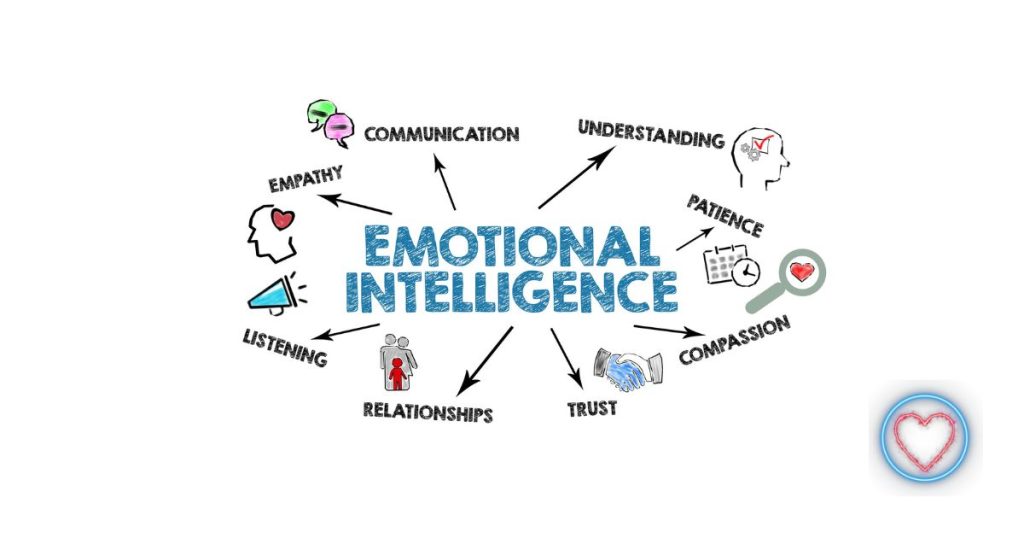In today’s fast-paced, complex world, success is no longer dictated solely by IQ or technical skill. Increasingly, researchers and professionals alike point to another kind of intelligence—Emotional Intelligence (EI)—as the key to personal fulfillment, healthy relationships, and professional achievement.
Unlike IQ, which is relatively fixed, emotional intelligence can be developed and refined over time. From classrooms to boardrooms, emotional intelligence is transforming how people lead, collaborate, and thrive.
What Is Emotional Intelligence?
Emotional Intelligence, often abbreviated as EI or EQ (emotional quotient), is the ability to recognize, understand, manage, and influence emotions—both your own and those of others.
First popularized by psychologist Daniel Goleman in the 1990s, the concept of EI encompasses five core components:
- Self-awareness
- Self-regulation
- Motivation
- Empathy
- Social skills
These components work in harmony to help individuals navigate social complexities, handle interpersonal relationships, and make more thoughtful, constructive decisions.
The Five Components of Emotional Intelligence
1. Self-Awareness
This is the foundation of emotional intelligence. Self-awareness involves the ability to:
- Recognize your own emotional states
- Understand the triggers of those emotions
- Acknowledge how your feelings affect your thoughts and behavior
People with strong self-awareness are introspective. They’re able to step back and evaluate their emotional responses without being controlled by them.
Example: A self-aware person might realize they are feeling irritated in a meeting—not because of their coworkers’ ideas, but because they skipped lunch.
2. Self-Regulation
Once emotions are recognized, they must be managed. Self-regulation means staying in control of emotional impulses and reacting appropriately to situations.
It includes:
- Keeping disruptive emotions in check
- Practicing restraint when angry or frustrated
- Adapting to change with resilience
Example: Instead of lashing out at a colleague who makes a mistake, a self-regulated individual pauses, breathes, and offers constructive feedback.
3. Motivation
Emotionally intelligent people are driven by internal rather than external rewards. They possess a strong desire to achieve for the sake of achievement, not just money or status.
They tend to:
- Be optimistic even in the face of failure
- Set and pursue meaningful goals
- Remain committed and passionate about their work
Example: A motivated employee who misses a promotion doesn’t give up but instead seeks feedback and continues improving.
4. Empathy
Empathy is the capacity to understand and share the feelings of others. It’s crucial for building trust, resolving conflict, and leading with compassion.
Empathetic individuals can:
- Read social cues accurately
- Understand the emotions behind words or behavior
- Respond with sensitivity
Example: A manager with empathy senses that a team member is stressed and offers support, rather than criticism.
5. Social Skills
The ability to manage relationships effectively is the pinnacle of emotional intelligence. Strong social skills enable people to:
- Communicate clearly and persuasively
- Work well in teams
- Influence others in positive ways
- Resolve conflicts
Example: A person with high social skills might help mediate a disagreement between colleagues by finding common ground.
Why Emotional Intelligence Matters
1. In Personal Life
In friendships, romantic relationships, and family dynamics, emotional intelligence plays a vital role. It allows individuals to:
- Navigate emotional conversations with sensitivity
- Express feelings in a healthy, constructive manner
- Build deeper, more authentic connections
For example, couples with higher EQ tend to argue less destructively, listen more empathetically, and resolve issues more peacefully.
2. In the Workplace
Emotional intelligence is one of the most valued traits in modern workplaces. According to a TalentSmart study, EQ accounts for 58% of performance in all types of jobs, and 90% of top performers are high in emotional intelligence.
Benefits include:
- Better teamwork and collaboration
- Enhanced leadership and management skills
- Greater resilience to workplace stress
- Improved customer service
Organizations are now incorporating emotional intelligence training into leadership development, hiring practices, and employee wellness programs.
3. In Leadership
Great leaders aren’t just smart—they’re emotionally intelligent. Leaders with high EQ can:
- Inspire and motivate others
- Remain calm under pressure
- Manage diverse teams with empathy
- Cultivate trust and loyalty
Think of leaders like Nelson Mandela, Jacinda Ardern, or Satya Nadella—whose calm demeanor and emotional insight are often cited as key to their success.
Emotional Intelligence vs. IQ
IQ (Intelligence Quotient) measures cognitive abilities such as logic, reasoning, and memory. It’s often viewed as a predictor of academic success. However, IQ does not account for emotional maturity, relationship skills, or self-management.
Emotional intelligence complements IQ by enabling individuals to apply knowledge wisely in real-world, emotionally complex situations. While IQ may get you the job, EQ helps you keep it—and thrive in it.
Can Emotional Intelligence Be Learned?
Absolutely. While some people naturally exhibit high emotional intelligence, it is a skill that can be developed through practice, self-reflection, and training.
Steps to Improve Emotional Intelligence:
- Practice mindfulness
– Helps increase self-awareness and reduce emotional reactivity - Develop active listening skills
– Focus entirely on the speaker without planning your response - Seek feedback
– Ask friends or coworkers how you’re perceived emotionally - Journal your emotions
– Helps identify emotional patterns and triggers - Pause before reacting
– Take a breath before responding in heated situations - Work on empathy
– Try to see situations from others’ perspectives - Take emotional intelligence training
– Many coaching programs and online platforms now offer EQ development
Emotional Intelligence in the Age of Technology
As society becomes more digitized, emotional intelligence is more essential than ever. Ironically, technology—especially social media and remote communication—has made it harder to practice empathy and active listening.
In the age of AI, automation, and remote work, EQ offers a uniquely human advantage. While machines can analyze data, only humans can feel—and that makes emotional intelligence one of the most future-proof skills in the world.
Common Misconceptions About Emotional Intelligence
1. EQ Is Just About Being Nice
False. Emotional intelligence doesn’t mean always being agreeable. It means knowing when and how to express emotions—whether it’s offering praise or delivering difficult feedback.
2. You Either Have It or You Don’t
Wrong again. While some people may have a natural aptitude, EQ is a set of skills that anyone can learn with intention and effort.
3. EQ Is Less Important Than IQ
Not anymore. In many situations, particularly leadership, caregiving, sales, and education, EQ can be more critical than raw intelligence.
Real-World Examples of Emotional Intelligence
- Customer Service: A hotel employee notices a frustrated guest and addresses their concerns with genuine care, turning a complaint into a positive review.
- Parenting: A parent recognizes their child’s tantrum as a sign of hunger and not defiance, responding with understanding instead of punishment.
- Conflict Resolution: A team leader senses rising tension during a meeting, pauses the discussion, and invites everyone to express their views openly, leading to a collaborative solution.
These seemingly small moments of emotional intelligence can have lasting impacts.
The Future of Emotional Intelligence
As the world becomes more emotionally complex—through increased diversity, globalization, and technological integration—emotional intelligence will only become more vital.
In the coming years, we can expect:
- Emotional intelligence to be integrated into school curricula
- Greater focus on EQ in hiring and leadership development
- Wider adoption of emotional analytics in AI and HR software
- More tools and apps aimed at developing emotional awareness and regulation
The World Economic Forum even lists emotional intelligence among the top 10 skills of the future workforce.
Final Thoughts
Emotional intelligence is more than just a buzzword—it’s a cornerstone of human connection and success. Whether you’re building a career, leading a team, raising a family, or just trying to navigate life with more grace, EQ can be your most powerful ally.
Unlike IQ, emotional intelligence is not measured on a test but revealed in your daily interactions, your self-reflection, and your capacity to grow.
In a world that often values speed and intellect, it is emotional intelligence that reminds us to slow down, tune in, and truly connect.













